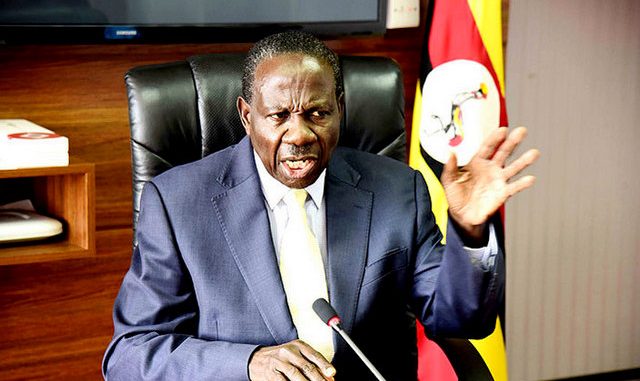KAMPALA, UGANDA: The government spent more money than it had planned in May 2023 despite the continued complaints of unfulfilled obligations especially on salaries and wages. The total planned expenditure for the month was Shillings 2.985 trillion, but it ended up spending Shillings 3.5 trillion as priorities changed across the different sectors.
This performance was mainly due to the higher-than-planned spending on non-wage recurrent items, domestically financed development projects, interest payments, and wages and salaries during the month, according to the Ministry of Finance, Planning, and Economic Development.
During the month, a total of Shillings 559.4 billion was paid out in salaries and wages, and this was about Shillings 31 billion higher than what had been planned in the budget. This followed the payment of some civil servants whose wages and salaries had been pending from the previous months, according to the government.
The government has been under pressure to clear salaries and wages, with most complaints coming from local government workers, teachers, and health personnel. Medical interns and senior medical officers made several protests over their allowances and delayed deployment, while at some hospitals like Kawolo, staff had to lay down their tools over delayed salaries.
The Ministry of Public Service has blamed the delays and varying degrees of salary arrears on the failure of MDAs to promptly adjust to the new provisions of the public finance management policies. Expenditure on recurrent items excluding salaries and wages amounted to 1.418.79 trillion, which was almost 50 per cent higher than the planned Shillings 951.81 billion.
“This was because of an increase in absorption by the majority of the ministries, departments, and agencies (MDAs) in a bid to accomplish all their work plans before the close of the financial year,” says the Ministry.
The financial year ends June 30 and the budget for the next year has already been read to the public. The rush by the MDAs is a result of the ministry’s warning that underperforming project heads and accounting officers would be penalized because this leads to increased costs of project implementation.
Steven Mukitale, a political and economic commentator, says the ministry should focus on asking the MDAs how much their money was spent on which activity and not just how much was absorbed.
According to him, this will mean real value for money. For this same reason, expenditure on domestically financed development projects was higher than planned for the month by Shillings 182.07 billion.
The majority of the funds under this category went to the works sector, mainly to the Uganda National Roads Authority, UNRA, which received approximately 300 billion shillings during the month. Permanent Secretary, Ramathan Ggoobi said the extra funds released for the roads sector were mainly to cater for disasters caused by harsh weather.
He gave the Katonga Bridge collapse as the best example of an emergency that deserved a supplementary budget. The higher government expenditure was also noted in domestic interest payments, which totalled Shillings 508.7 billion, higher by Shillings 147 billion.
The ministry also reports that recurrent expenses categorized as “other” amounted to 1.419 trillion instead of the planned 952 billion. These, according to the ministry continue to be higher than planned mainly because of the increase in interest rates during the financial year. On development expenditure, a total of Shillings 752 billion was spent compared to the 569.7 billion Shillings that had been planned, while externally financed programs received only 214.6 billion which was less than the planned Shillings 481 billion.
This overall overspending by the government meant that its operations last month resulted in a fiscal deficit, the difference between the planned and actual expenditure, of 1.425 trillion Shillings. This is higher than the Shillings 833.86 billion deficit that had been programmed for the month, which was also enhanced by shortfalls in revenues.
Total revenues planned for the month was Shillings 2.152 trillion but Shillings 2.074 trillion was received, with both revenue collection and grants recording shortfalls. Uganda Revenue Authority managed to raise Shillings 2.029 trillion, which was lower than the target of 2.047 trillion shillings.
On the other hand, the government expected to get 103 billion in grants but realized just Shillings 44.5 billion.
Reading the next financial year budget last week, Minister Matia Kasaija said the deficit for next year is planned to drop to 3.5 per cent of GDP, down from the 5.1 per cent planned for this year, as URA is expected to increase its collections while public expenditure should fall drastically.
Do you have a story or an opinion to share? Email us on: dailyexpressug@gmail.com Or follow the Daily Express on X Platform or WhatsApp for the latest updates.

